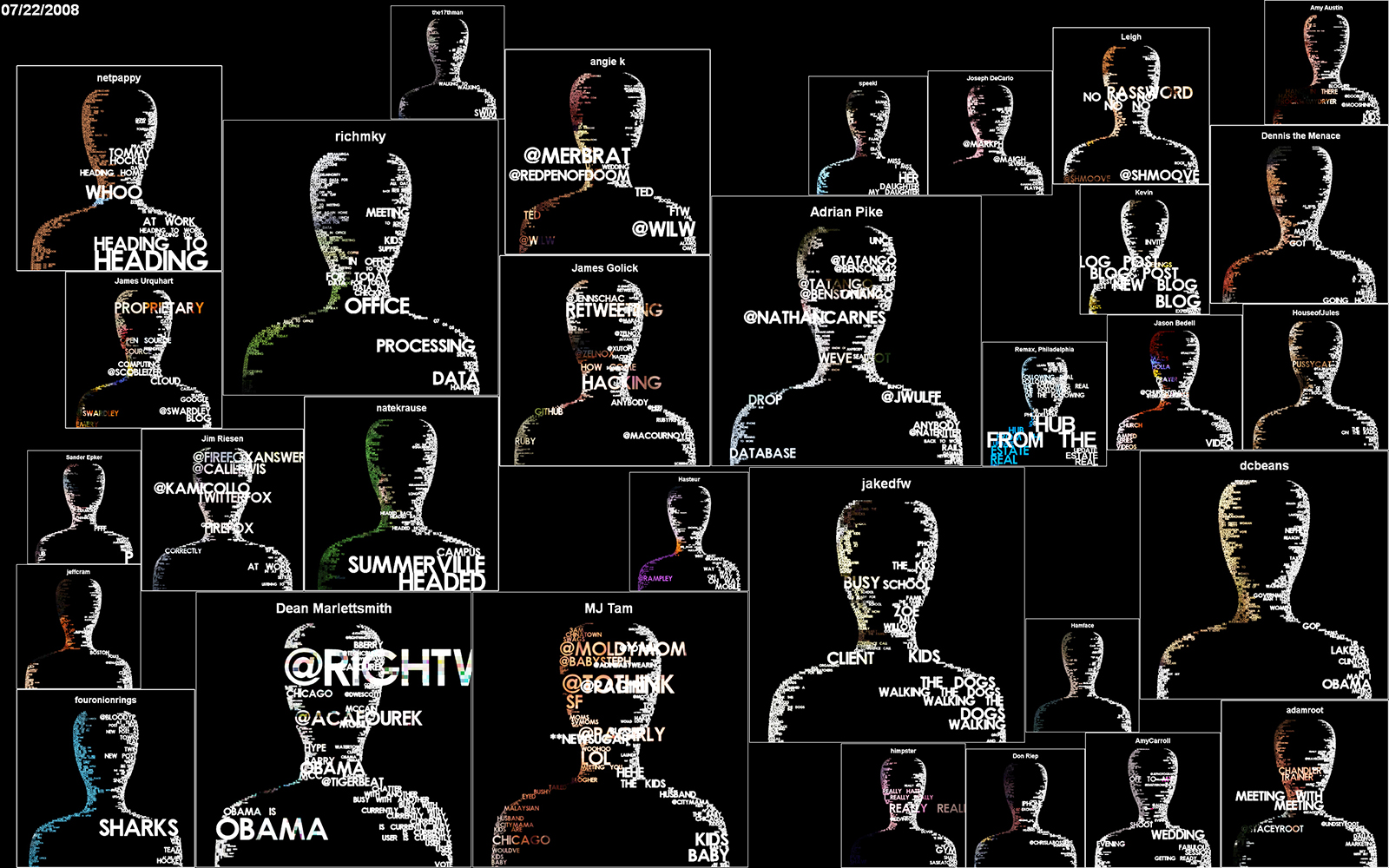Author Judith Donath gives lecture on digital online portraits

The UCLA Design | Media Arts department will present author Judith Donath Tuesday for its lecture series. Donath, whose book, “The Social Machine: Designs for Living Online,” develops interfaces, called data portraits (pictured) that map users’ social media interactions to produce a coherent visual of how people interact online. (Courtesy of Alex Dragulescu)
Judith Donath: Algorithmic Portraits
Today, 6 p.m.Broad Art Center, EDA Room, FREE
By Nick LaRosa
Feb. 3, 2015 12:28 a.m.
Every action we make online is recorded. Whether it’s pictures on Facebook, purchase histories on Amazon or even the momentary flashes captured by Snapchat and Instagram, society is progressively spending more and more time inhabiting an ever-changing yet permanent digital landscape.
This is the premise of author Judith Donath’s book “The Social Machine: Designs for Living Online” and her upcoming lecture as part of UCLA’s Design | Media Arts lecture series on Tuesday, at 6 p.m. in the Broad Art Center.
Donath’s talk, “Algorithmic Portraits,” addresses the reality that every decision made online helps to define individuals because of the nature of cyber-data, with permanent traces of every action made. Donath said this data creates a portrait of the user, much as single brush-strokes combine to make a visual portrait, which in turn has various implications in terms of privacy, control, aesthetics and social cognition.
College students are at the forefront of one of the first generations to have to worry about these issues, which stem from having a digital footprint. While this permanence may make some users hesitant to partake in digital interaction, Donath said the Internet offers a wide array of new forms of interaction, previously unavailable to people, whether they be artists, authors or simply recreational Internet users.
It was for this reason, according to Rebecca Allen, head of the Design | Media Arts department and former Massachusetts Institute of Technology colleague of Donath, that the Design | Media Arts department chose to invite Donath to speak, believing that her strong interest in the interfaces, visual identity issues and forms of collaboration could enrich students regardless of their department.

“What’s interesting about (Donath’s) work is how widely applicable it is. It applies to the computer sciences, information technologies and digital humanities, but also our department,” Allen said.
One of social media’s roles is to connect people and spur interaction, and it is for this reason that Donath believes her talk applies so well to both the design and arts sides of the Design | Media Arts department.
“What I’m most interested in is the potential for new interfaces that could allow for more intuitive and easier collaboration,” said fourth-year photography student Alex Wrubel. “In the 21st century, much of art, whether it be meeting other artists, finding inspiration or publishing, is done online. I’m interested in whether new application of social media and these data portraits could connect the different areas of the art world in cool new ways.”
According to Allen, Donath is also an ideal lecturer for the department, as she has a background as an artist as well.
“(Donath) has always been ahead of her time in terms of her understanding of how computers could be used to create a social landscape. But beyond that, (Donath) also comes to us with an artist’s background. She was one of the first to combine aspects of social media in her installation,” Allen said.
One of the key points of Donath’s talk is to propose strategies to enjoy all that the digital world has to offer without it coming to hinder real world relationships and ambitions. Donath said her proposed solution is compartmentalization of an individual’s different online selves.
“We have a variety of personas depending upon what we are doing online,” Donath said. “I think this is something important for people, especially design students, to consider when creating new interfaces.”
Donath said her talk will be especially interesting for design students, as by studying and understanding what people choose to express about themselves and how they choose to express it, design students will be able to come up with new and innovative interfaces by which people can express themselves online, whether it be artistically or otherwise.
“We are all familiar with social media in the form of Facebook and Myspace, but these sites are basically similar and build off of a shared format,” Donath said. “It’s my hope that by considering data portraits, students will be inspired to consider original formats.”


